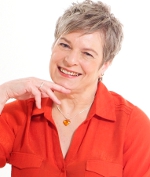Can we have sex when sharing a room with our baby?
Why it’s OK for you and your partner to have sex when sharing a room with your baby

As much as you might like to keep your parenting life away from your sex life their paths will cross and especially in the early days, weeks and months when you’re sharing a room with your baby.
The good news is there’s no need to keep quiet and here’s why.

One of the advertiser’s clichés about having a baby in the house is to show parents tip-toing around, terrified stepping on a squeaky toy or raising your voice would set off a howl and wake the baby you’ve taken ages to get to sleep. One of the first causalities of such fears is your sex life. So many parents feel they can no longer relax into making love in case they don’t hear that their baby needs them, or that any grunts and moans may disturb them. And above all they may fear that the sounds of sexual pleasure could in some way worry or frighten a child. Are these anxieties realistic and should you keep quiet in a home with a baby?
The quick answer is no, no way should you stop enjoying your love life now a little one has arrived. In fact, since your child needs you to be happy and committed to each other the best way for that to happen is for you to have an enjoyable and frequent – and possibly satisfactorily noisy - sex life.
So how should you manage noise in your home with a baby around?
Are you a light or heavy sleeper? Has it ever occurred to you to wonder what might have made you one or the other? Sensitivity to noise can partly be a matter of hardwiring. Some babies are more sensitive to it than others and while they may become easier as time goes by, some remain prone to find noise bothers them more than others.
Newborn babies would seem to be more sensitive to noises than adults, probably because it is all so new. We learn to discount sounds that we hear all the time. Indeed, city dwellers who go to stay in the countryside maybe alarmed and discomforted by the silence. But babies are born already used to some noise, from their time in the womb. They can hear their mother’s heartbeat, the rush of blood and noises from outside the womb - music playing, conversation, dogs barking. These will have formed a background from before they are born and while they will become louder once they are outside the womb, they still won’t be entirely unfamiliar.
What you may soon realise is that babies have very different sleep rhythms to our own. We all cycle through light and deep sleep, when REM or Rapid Eye Movement sleep occurs. REM sleep stimulates the brain regions used in learning. This may be important for brain development during infancy, which would explain why infants spend much more time in REM sleep than adults. But it does mean newborn babies experience many more sleep cycles per night, and as a result they go into light sleep more often too, with more potential for waking.
But that doesn’t mean you have to tip-toe around or swear off sex while you're sharing a room with your baby. While babies sensitivity to noise may be something that is more likely in some children than others, getting used to everyday noise is something we can teach all children. So next time the old flames get fired up do what feels right. If your comfortable pop your baby in the crib or bassinet when things hot up.
If you’re sharing a room past 6 months when your baby’s big eyes can see anything and everything you may well find that this will take you from hot to not in an instant. This is especially so if you're someone who needs to deactivate that part of your brain that feels stress and anxiety before feeling sexy. Do it somewhere else like the spare bedroom, bathroom or flick the monitor on and creep stealth-like downstairs. Remember, it’s OK to be a little selfish when it comes to your sexual relationship. You might have to hold the romance and compromise on the time or location but the two of you are simply sharing love and your baby gets happy contented parents.

Bounty “Sex & Relationship” articles are written by expert Suzie Hayman. Suzie is agony aunt for Woman magazine, a Relate trained counsellor, and an accredited TripleP (Positive Parenting Programme) parenting educator. She makes frequent appearances on TV and radio and as well as writing 31 books, Suzie writes features on parenting, relationships, sex and couples counselling, for a wide range of national magazines and newspapers